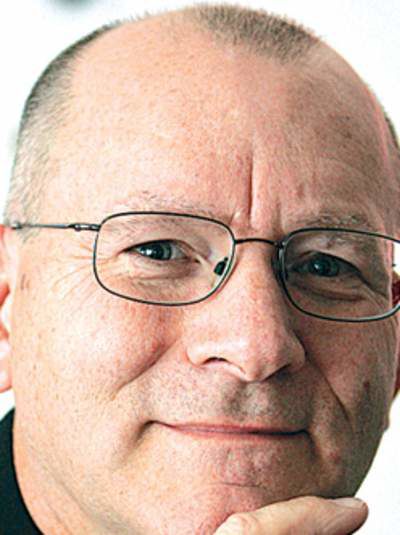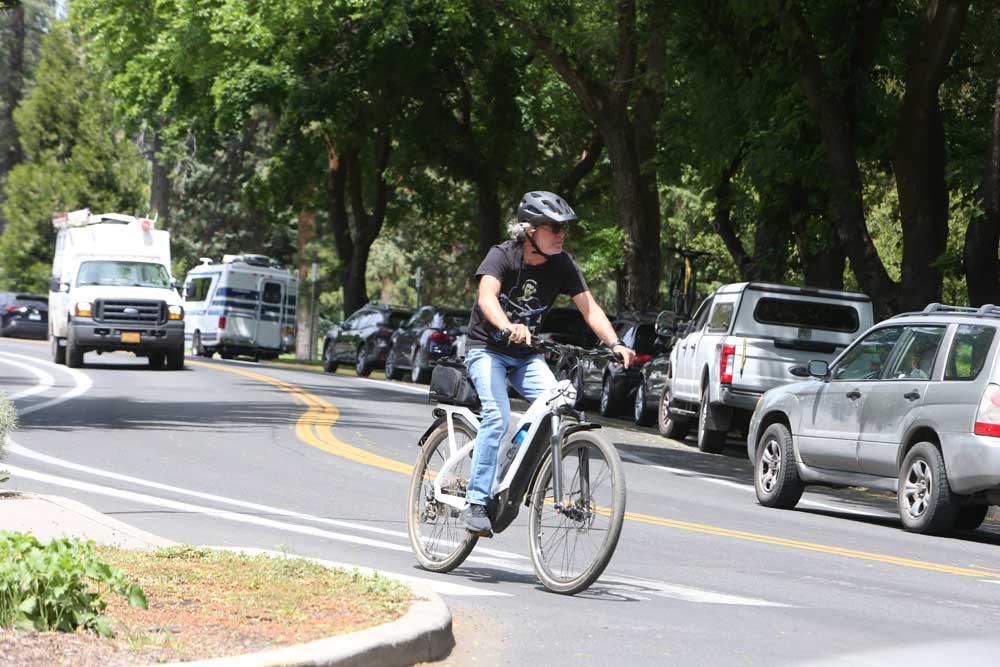Local diocese changes its tactics for combating child abuse
Published 5:00 am Friday, September 25, 2009

- Bishop Robert Vasa
The Bend-based Diocese of Baker, named this year as one of two U.S. Catholic dioceses that failed to comply with the church’s charter on protecting children from sex abuse, recently changed its training practices.
The Catholic Church’s Charter for the Protection of Children and Young People, adopted in 2002 at the height of the priest sex abuse scandal, requires its dioceses to educate and train “children, youth, parents, ministers, educators, volunteers, and others about ways to make and maintain a safe environment for children and young people.”
But Bishop Robert Vasa, head of the Baker Diocese, says it is wrong to teach children about sexual abuse or how to protect themselves from potential offenders because that responsibility lies with parents and caregivers.
The diocese is now sending all of its staff and volunteers to “Darkness to Light” training — a national program taught locally by the Kids Intervention and Diagnostic Services (KIDS) Center — that emphasizes adult responsibility for keeping children safe from sex abuse.
“We are not training adults to train children,” Vasa said. “We are training adults to train other adults that they need to be more vigilant in protecting children.”
But “talking openly” to children about abuse is one of seven components of the Darkness to Light training, according to the program’s Web site.
“Whether they are trained in that way or not, is of no consequence to me because protecting children is an adult responsibility,” Vasa said.
Last week, 16 diocese staff members went through “facilitator” training, meaning they will now teach the Darkness to Light curriculum to others, said Elaine Knobbs, director of prevention and education at the KIDS Center, the region’s child abuse intervention center.
When taking the course, facilitators must sign an agreement to “strictly follow the script” provided to them by Darkness to Light, according to the organization’s Web site.
But Vasa said he “has not endorsed” the component of the training that includes talking to children about sexual abuse and that doing so is not appropriate under any circumstance.
In March, the U.S. Conference of Catholic Bishops named the Baker Diocese as one of two in the country that refused to participate in a nationwide audit of child safety practices.
The 2008 Catholic bishops report said that the Diocese of Baker — which covers Eastern and Central Oregon — does not provide safe-environment training for children and so it was not in compliance with the church’s charter.
Vasa says he still refuses to implement any training program teaching children how to keep themselves safe from potential sexual predators but that the diocese has been training adults as required since the 2002 charter was adopted.
He said more than 2,500 volunteers and staff members from the Baker Diocese have gone through training on protecting children from abuse and that they are required to do so as part of their affiliation with the church.
Vasa has worked with the Catholic Medical Association, which has developed a six-hour training program for adults called Healthy Families, Safe Children. The Baker Diocese has made the video version of the program “… required viewing for all parents with children in Catholic School or CCD programs unless the parents specifically opt out in writing,” according to its Web site.
And, before changing to the Darkness to Light program, Vasa said the diocese was sending its volunteers and staff to a program created by the National Catholic Risk Retention Group Inc., a nonprofit insurance company that underwrites policies for the church.
That training, known as VIRTUS, “includes a child training program which I did not particularly like,” Vasa said. So he decided to change to Darkness to Light.
Peggy Buselli, the diocese’s administrative assistant, said she went through a three-hour Darkness to Light awareness training as a part of her job and because she wanted to be able to better identify signs of child abuse.
Buselli described the program as “more hopeful” than other child protection training she has been through.
“I think it was a lot more encouraging to people to get involved and maybe listen a little more to their instincts and pay attention for signs of abuse,” she said.
Buselli said she does not believe the training conflicts with Vasa’s opposition to teaching children about sexual abuse.
“I think it’s kind of more of an issue of who talks to the children, and I feel that responsibility remains in the home,” she said. “If you teach a child to rely on their home for the support they need, even if they are having problems at home, they are more apt to go to somebody they trust.”
Knobbs of the KIDS Center conducts local training for both facilitators and the course that Buselli took, for individuals who want to learn the best methods for protecting children from sexual abuse.
“The program is specifically designed to help adults prevent, recognize and react responsibly to child sexual abuse,” Knobbs said. “It places the responsibility of protecting children from sexual abuse squarely on the shoulders of adults.”
Knobbs said she was “very excited” about having the 16 additional facilitators from the Baker Diocese to help increase awareness of child sexual abuse in Central and Eastern Oregon.
“My mantra is that this is a community effort,” Knobbs said. “And when you sit through the training, you don’t feel like, ‘This is just for my group.’
“This is for the community. So we are just very, very happy that they are choosing to join us.”
She said churches of other denominations in the Bend and Redmond areas have gone through the training as well and that a total of more than 4,000 people have gone through the Darkness to Light awareness program since 2006.
Knobbs said she hopes other churches will contact her to bring groups in for the training.
The training
Darkness to Light is a national nonprofit 501(c)(3) organization that provides training for adults about preventing and recognizing the signs of child sex abuse and how to respond to it.
Information about the program is available online at www.darkness2light.org.
For more information about local training, contact Elaine Knobbs at the KIDS Center at 541-383-5958.






